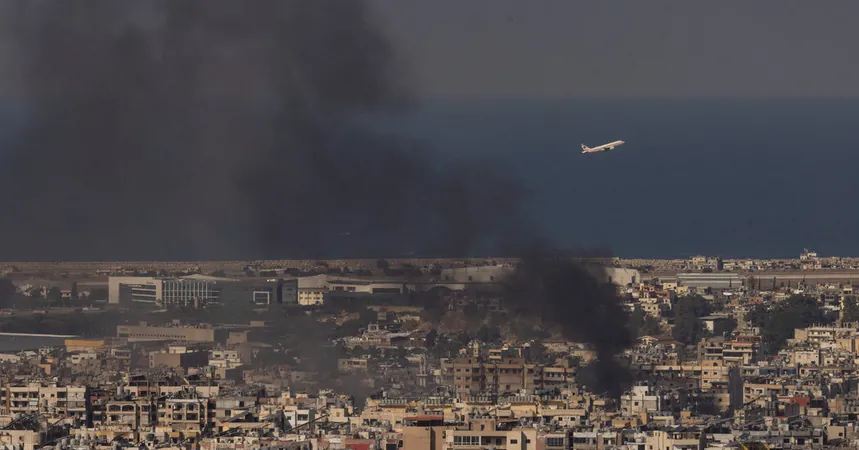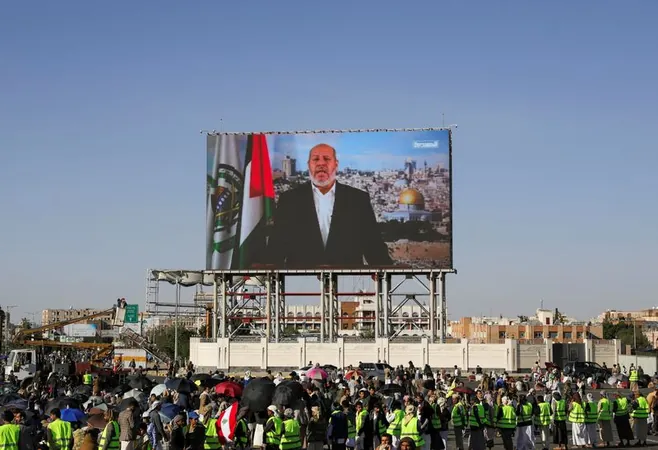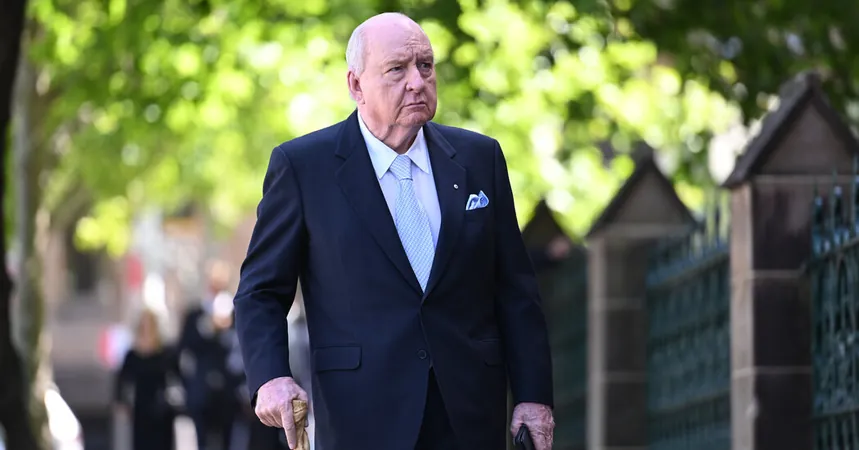
Middle East Airlines: Lebanon’s Symbol of Resilience Amidst Chaos
2024-11-20
Author: Ling
Introduction
In the midst of conflict and destruction, one airline has risen to unexpected heroism in Lebanon: Middle East Airlines (MEA). Traditionally, like many national carriers, MEA faced its share of complaints about delays, ticket prices, and in-flight meals. However, since the recent escalation of hostilities following Israel’s invasion of Lebanon targeting Hezbollah, MEA has become a beacon of hope, defying the odds by continuing its operations against a backdrop of bombings in Beirut.
Resilience Amidst Airstrikes
With Israeli airstrikes targeting the militant group Hezbollah's leadership and destroying entire neighborhoods, MEA’s resilience is remarkable. The airline is currently the only commercial carrier operating in and out of Lebanon, with flights taking off just minutes after attacks occur nearby. As such, locals have begun to laud MEA as 'heroes of the sky' and a symbol of steadfastness in a nation scarred by decades of conflict.
Public Perception and Operational Challenges
Though many passengers voice concerns over rising ticket prices, the airline has garnered a wave of praise on social media. A prominent cleric declared the airline embodies the courage of the Lebanese people, flying amidst the chaos of war. Nevertheless, MEA's spokesman, Mohammed Aziz, a former pilot himself, insists, 'We are not heroes; we are—first and foremost—a commercial airline,' highlighting the delicate balance between operational normalcy and crisis management.
Historical Context and Financial Resilience
Historically, MEA has shown remarkable endurance, having navigated through multiple conflicts over the decades, including the wars of 1967 and 1973, the Lebanese Civil War, and the Israeli invasions of 1982 and 2006. The airline has maintained profitability even amid the ongoing crises in the nation, employing a proactive approach by having multiple contingency plans ready to be activated at any moment.
Crisis Management Initiatives
Amidst this current turmoil, MEA has established a 'crisis unit' in collaboration with Lebanon’s Civil Aviation Authority to ensure the safety of its flights. This unit assesses every potential flight risk, making real-time decisions to delay departures or adjust landing approaches to ensure passenger safety. Airline safety consultant Mazen Sammak notes the surreal nature of their operations; 'You can’t find another airport worldwide operating with shelling hitting 500 meters away from it.'
Symbolism of Air Travel
Despite the daunting conditions on the ground, the continued flights of MEA instill a sense of connection for the Lebanese. Historian Makram Rabah points out, 'As long as the airport is open, it means we’re not totally cut off from the world.' The symbolism of air travel is potent, reminding Lebanese people of their rich history as a Mediterranean society that has always sought connection beyond its borders.
Historical Significance of MEA
The airline's journey is not new; it has endured significant events that have punctuated Lebanon's tumultuous past. In 1968, Israel’s retaliation to a hijacking incident involved a bomb attack on Beirut International Airport that destroyed over half of MEA's fleet. The airline managed to recover by acquiring risk insurance cleverly crafted for such scenarios, enabling it to sustain operations.
Legacy of Leadership
In its heyday during the 1960s, MEA was internationally admired as the most successful airline in the Arab world. With a reputation for luxury and quality, it catered to the elite while capturing the spirit of a nation that once basked in glamour and prosperity. The airline’s first CEO, Najib Alamuddin, became a national figure, navigating relationships with various factions to ensure the safety of MEA and its passengers.
Current Leadership and Future Outlook
Today, MEA’s current leadership continues this legacy of navigation through adversity. Chairman Mohammed al-Hout, alongside his team, maintains open channels of communication with both the U.S. Embassy and Hezbollah-affiliated officials to ensure the airline’s safe passage amidst the volatile socio-political landscape.
Conclusion
Through its trials and tribulations, MEA embodies the resilience of the Lebanese people. As the airline continues to fly, it provides a connection to a larger world, offering a semblance of normalcy in times of chaos. Despite the scars of conflict, Lebanon’s spirit endures, symbolized in the soaring steel of Middle East Airlines—a lifeline to hope amidst despair.



 Brasil (PT)
Brasil (PT)
 Canada (EN)
Canada (EN)
 Chile (ES)
Chile (ES)
 España (ES)
España (ES)
 France (FR)
France (FR)
 Hong Kong (EN)
Hong Kong (EN)
 Italia (IT)
Italia (IT)
 日本 (JA)
日本 (JA)
 Magyarország (HU)
Magyarország (HU)
 Norge (NO)
Norge (NO)
 Polska (PL)
Polska (PL)
 Schweiz (DE)
Schweiz (DE)
 Singapore (EN)
Singapore (EN)
 Sverige (SV)
Sverige (SV)
 Suomi (FI)
Suomi (FI)
 Türkiye (TR)
Türkiye (TR)